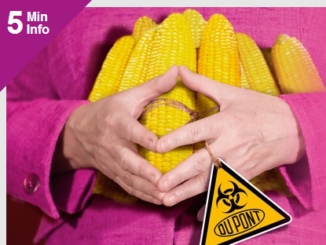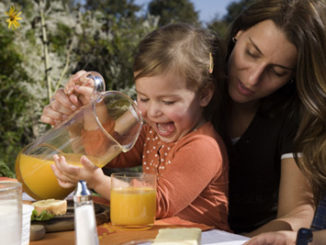
EU ministers have still not managed to find common ground on new GMOs (aka new genetic technologies, or NGTs) despite a last minute push on the file before the Christmas break. Meanwhile, the European Commission proposed to downgrade the protection status of wolves, much to the chagrin of environmentalists. And it turns out the EU is missing most of its environmental targets – except those that relate to cash. Natasha Foote and Oliver Moore brings you up to speed in the latest goings on in Brussels.
GMno’s
The Spanish Presidency’s hopes of finding a common position on the EU’s plans to loosen the rules on the use of genetic editing technologies were dashed this week after it yet again failed to rally enough support to seal a deal before the end of its tenure.
The new genetic modification techniques – also known as new genomic techniques (NGTs), gene editing or new GMOs – describes several scientific methods used to alter genomes and genetically engineer certain traits into plants.
Despite the fact that EU agriculture ministers failed to find a position on the file in the last meeting of EU agriculture ministers of the year, those at the helm of the rotating EU presidency were still hoping for a Christmas miracle.
A representative for the Spanish Presidency said at the time that they had scheduled a last ditch attempt to push for a position during a meeting of EU ambassadors on 22 December.
However, despite a concerted push from the Presidency, their efforts have fallen flat.
According to sources, the Spanish were pinning their hopes on a change of heart in the newly-formed Polish government, which would have been enough to tip the scales in favour of their proposal.
But the offer on the table was unable to sway the Polish, with a diplomatic source explaining that the new government has maintained its position, sharing the “same concerns” as its predecessors.
Ministers are still divided on several controversial points of the legislation, such as the coexistence of NGTs with organic farming and the possibility of patenting new plant varieties.
However, it is not game-over for the file just yet. Instead, it means that the baton is officially passed to the next in line – in this case, the Belgians, who take their turn at the helm of the rotating EU Presidency in January and have already been vocal about their desire to push ahead with work on the file.
What a howler
The European Commission proposed to downgrade the protection status of wolves in Europe this week in a move which would open up the possibility of hunting them in the EU.
Wolves are currently a protected species in Europe, meaning they can only be killed under exceptional circumstances. However, amid growing pushback from farmers and looming EU elections, the issue has found itself back in the spotlight in recent months.
This culminated in a proposal put forth on Wednesday (20 December) to lower wolves’ status from ‘strictly protected’ to only ‘protected’.
“The concentration of wolf packs in some European regions has become a real danger, especially for livestock,” Commission president Ursula von der Leyen said in a statement accompanying the announcement.
For the Commission President – who incidentally lost her pony to a wolf attack last year – this is the first step towards “more flexibility” for local authorities to “manage critical wolf concentrations more actively”.
According to a report that was published alongside the announcement, some 65,500 heads of livestock are lost annually to wolf attacks, the majority of which are sheep and goats. However, the level of sheep depredation amounts to only 0.065% of the 60 million sheep in the EU.
While the move was welcomed by EU agriculture Commissioner Janusz Wojciechowski and EU farmers associations, environmentalists lambasted the decision as not grounded in science.
“This decision of the European Commission is deeply troubling, as it is driven more by political convenience than scientific evidence and stems from an opaque and irregular consultation process relying on anecdotal submissions,” Joanna Swabe, senior director at animal protection NGO Humane Society, said in a statement.
Earlier in the week, almost 300 groups co-signed a letter to the Commissioner criticising the lack of scientific backing for this move.
Others decried the move as a cynical attempt to drum up support among rural communities for the 2024 elections, pointing out that it comes as Von der Leyen’s political family, the centre-right EPP, attempts to position itself as the farmers party.
As such, Sergiy Moroz, policy manager for biodiversity and water at the European Environmental Bureau, called the move an “early Christmas present” to von der Leyen’s political family, the centre-right EPP. (below, footage of wolves being willingly released into the wild in Colorado, US, after a vote to do so,)
Organic target out of reach?
The EU will most likely fall short of its ambition to see 25% of EU agricultural land farmed organically by 2030, according to a new report from the European Environment Agency (EEA), which concluded that it would require a doubling of the current rate of progress to reach the goal.
The report, published on Monday (18 December), found that the bloc will miss the mark on most of its environmental targets, as set out in the EU’s Green Deal, including its ambitions for organic farming.
Read download the 8th-EAP-Progress-Report-in English in full
“It is very unlikely that the 2030 target will be met because of the large distance to the target,” reads the report.
While there is a general upwards trend in organic farming, which rose from 5.9% of the agricultural land to 9.9% in 2021, this pace is unlikely to be sufficient, it added.
To help bridge the gap, the report recommends stronger policy support to help encourage a “fundamental transformation of food production and consumption”.
Figures from 2022 and 2023 will likely show continued growth, with 15% being perhaps a more realistic scenario under current conditions and trajectories, for the organic sector.
Most targets out of reach too

Of the 28 monitoring targets, organic farming’s target is one of five in the “very unlikely” category.
Most – 15 – remain squarely in the “unlikely but uncertain” category, with some (3) remaining as “likely but certain”.
Improved energy use and circular materials use are both ranked as “very unlikely” too, joined by GHG emissions from land use, land use change and forestry (LULUCF) and Europe’s consumption footprint.
Indeed, almost all of the successes and strong successes are in the “enabling” and “living well” categories, which are about state spending and business – with innovation, employment, gross value added in the green sectors ranking “very likely” and related business actions “likely but uncertain”.
The actual targets themselves? Not so much.

More from Brussels
Brussels Roundup – Stasis for Animals, Tightrope for new GMOs
Seeds of Europe – Centering Small Producers’ Voices in Seed Law Reform
Leak – No Live Export Ban to non-EU Countries in Animal Welfare Overhaul






